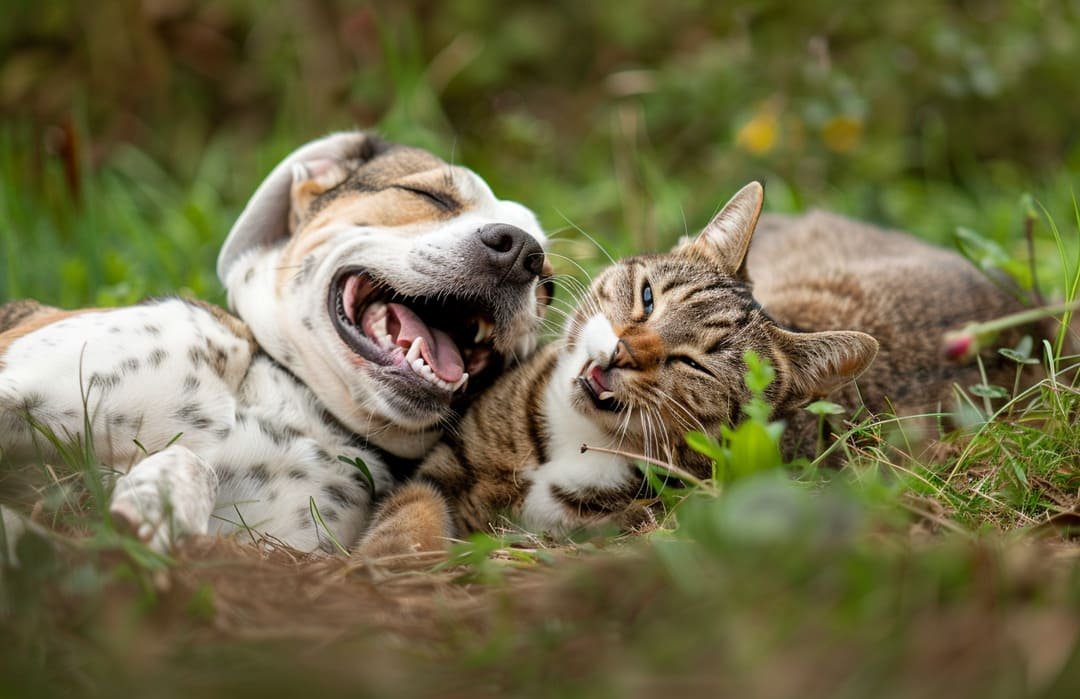Dog skin cancer prevention is a crucial aspect of responsible pet ownership, ensuring the well-being and longevity of our beloved canine companions. Imagine the sun's warm rays, a playful game of fetch in the yard – all moments that enrich a dog's life, but also moments where skin cancer risks can silently lurk. In this comprehensive guide, we delve into five essential tips to protect your dog from the threat of skin cancer and pave the way for a healthy and vibrant life together. Join us as we explore proactive strategies to safeguard your furry friend's skin health and overall happiness.
Understanding Dog Skin Cancer
Types of Skin Cancer in Dogs
Skin cancer in dogs can manifest in various forms, including melanoma, squamous cell carcinoma, and mast cell tumors. These conditions can affect different layers of the skin and may vary in severity.
Risk Factors for Dog Skin Cancer
Certain factors increase a dog's susceptibility to skin cancer, such as prolonged sun exposure, genetics, age, and breed predispositions. Understanding these risk factors is crucial for effective prevention.
Importance of Regular Veterinary Check-ups
Regular veterinary check-ups play a vital role in the early detection and prevention of dog skin cancer. Veterinarians are trained to identify suspicious growths and can recommend appropriate diagnostic tests and treatment options.
Early Detection and Prevention Strategies
Early detection of skin cancer in dogs can significantly impact their prognosis. Monitoring your dog closely for any changes in skin appearance or texture and seeking prompt veterinary attention can help catch potential issues early.
How Vets Diagnose and Treat Dog Skin Cancer
Veterinarians may perform biopsies, blood tests, imaging studies, or other diagnostic procedures to confirm a skin cancer diagnosis. Treatment options may include surgery, chemotherapy, radiation therapy, or other targeted therapies.
Protecting Your Dog from Harmful UV Rays
Tips for Limiting Sun Exposure
Limiting your dog's time in direct sunlight, especially during peak hours, can reduce their risk of skin cancer. Providing shaded areas and protective clothing can help shield your dog from harmful UV rays.
Using Pet-Safe Sunscreen for Dogs
Applying pet-safe sunscreen to exposed areas of your dog's skin, such as the nose and ears, can offer additional protection. Look for sunscreens specifically formulated for pets to avoid potential skin irritations.
Maintaining a Healthy Diet for Skin Health
Nutrients and Supplements for Skin Cancer Prevention
Incorporating essential nutrients like omega-3 fatty acids, antioxidants, and vitamin E into your dog's diet can support overall skin health and potentially reduce the risk of skin cancer development.
Foods to Include and Avoid in Your Dog's Diet
Include foods rich in essential nutrients, such as fish, leafy greens, and berries, in your dog's diet. Avoid processed foods, excessive sugars, and artificial additives, which may contribute to inflammation and skin issues.
Creating a Safe and Happy Environment for Your Dog
Minimizing Exposure to Environmental Toxins
Limiting your dog's exposure to environmental toxins, such as pesticides, herbicides, and household chemicals, can protect their skin health. Opt for natural and pet-friendly products whenever possible.
Providing Proper Grooming and Skin Care Routine
Regular grooming, including brushing and bathing, can help maintain your dog's skin health and detect any abnormalities early. Use gentle products suitable for your dog's skin type to avoid irritation.
Remember, a proactive approach to dog skin cancer prevention, combined with regular veterinary care and a healthy lifestyle, can help ensure your furry companion's well-being.
Protecting Your Dog from Harmful UV Rays
Tips for Limiting Sun Exposure
Excessive sun exposure is a known risk factor for dog skin cancer. Here are some tips to protect your furry friend:
-
Limit outdoor activities during peak sun hours, typically between 10 AM and 4 PM.
-
Provide ample shade in your yard or use sun umbrellas for additional protection.
-
Consider protective clothing like doggy sun shirts or hats for breeds prone to sunburn.
-
Take walks in shaded areas or use pet-friendly sunscreens on exposed skin areas.
Using Pet-Safe Sunscreen for Dogs
When selecting a sunscreen for your dog, it's essential to choose a pet-safe option to prevent skin irritation or toxicity:
-
Look for sunscreens specifically formulated for dogs without harmful chemicals like zinc oxide or PABA.
-
Apply sunscreen to areas with thin hair or no hair, such as the nose, ears, belly, and groin.
-
Reapply sunscreen every 2-4 hours, especially if your dog enjoys swimming or has been sweating.
For more information on pet-safe sunscreens, you can explore brands like Covetrus known for their veterinary products and safe solutions for pets.
Maintaining a Healthy Diet for Skin Health
Nutrients and Supplements for Skin Cancer Prevention
A well-balanced diet rich in essential nutrients can support your dog's skin health and potentially reduce the risk of skin cancer. Consider incorporating the following into your dog's diet:
-
Omega-3 fatty acids: Found in fish oil, flaxseed, and walnuts, omega-3 fatty acids help reduce inflammation and support skin health.
-
Antioxidants: Include fruits and vegetables like blueberries, carrots, and spinach to provide antioxidants that protect cells from damage.
-
Vitamin E: Nuts, seeds, and green leafy vegetables are sources of vitamin E, which promotes skin cell repair and overall skin health.
Foods to Include and Avoid in Your Dog's Diet
When planning your dog's diet for skin cancer prevention, focus on whole foods and avoid processed options that may contain harmful additives:
-
Include protein sources like lean meats or fish to support skin cell regeneration.
-
Incorporate fiber-rich foods such as sweet potatoes or green beans for digestive health, which can impact skin condition.
-
Avoid sugary treats and high-fat foods that can contribute to inflammation and skin issues.
For more information on pet nutrition and dietary recommendations, consult reputable sources like Hill's Pet Nutrition, a trusted brand known for their veterinarian-formulated pet foods and expert guidance on pet health and wellness.
Creating a Safe and Happy Environment for Your Dog
Minimizing Exposure to Environmental Toxins
Reducing your dog's exposure to harmful environmental toxins is vital for their overall well-being and skin health. Here are some ways to create a safe environment for your furry companion:
-
Use pet-safe cleaning products to avoid exposing your dog to toxic chemicals.
-
Store household items like pesticides, herbicides, and fertilizers in secure places out of your dog's reach.
-
Choose natural flea and tick prevention methods to limit pesticide exposure.
-
Consider planting pet-friendly plants in your yard and avoid toxic plants that may harm your dog if ingested.
Providing Proper Grooming and Skin Care Routine
Maintaining a regular grooming and skin care routine is essential for preventing skin issues and detecting any abnormalities early. Follow these tips for your dog's grooming and skin care:
-
Brush your dog's coat regularly to remove dirt, debris, and loose hair.
-
Bathe your dog with a gentle, pet-friendly shampoo suited for their skin type.
-
Check your dog's skin for any lumps, bumps, or changes in appearance during grooming sessions.
-
Trim your dog's nails to prevent overgrowth and discomfort.
To learn more about safe grooming practices and pet-friendly products, consider visiting Petco, a leading pet retailer known for offering a variety of grooming supplies and resources for pet care.
Summary: Taking a Proactive Approach to Dog Skin Cancer Prevention
Protecting your dog from skin cancer involves a multi-faceted approach that includes understanding the risks, regular check-ups, sun protection, a healthy diet, and a safe environment. By implementing these essential tips, you can significantly reduce the chances of your dog developing skin cancer.
Remember to monitor your dog's skin health closely, seek veterinary care at the first sign of abnormalities, and provide a loving and safe environment for your furry friend. By prioritizing prevention and well-being, you can help your dog lead a happy and healthy life free from the threat of skin cancer.
For further information and expert guidance on pet health and wellness, consider exploring resources from trusted companies like Royal Canin, known for their premium pet nutrition solutions and commitment to enhancing the well-being of pets worldwide. Start implementing these tips today to safeguard your dog's skin health and overall quality of life.
Can all dogs get skin cancer?
While all dogs can potentially develop skin cancer, certain breeds and individuals may be more predisposed due to factors like genetics, sun exposure, and overall health. It's essential to be proactive in skin cancer prevention for all dogs, regardless of breed or age.
How can I protect my dog from sun damage?
To protect your dog from harmful UV rays, limit sun exposure during peak hours, provide shaded areas, consider protective clothing or pet-safe sunscreen, and ensure access to fresh water to prevent dehydration.
What role does diet play in preventing dog skin cancer?
A nutritious diet rich in essential nutrients like omega-3 fatty acids, antioxidants, and vitamin E can support skin health and potentially reduce the risk of skin cancer. Whole foods and avoiding processed options are key for prevention.
How often should I take my dog to the vet for skin check-ups?
Regular veterinary check-ups are crucial for early detection of skin cancer in dogs. Consult your veterinarian for guidance on the frequency of skin examinations based on your dog's breed, age, and risk factors.
Are there specific signs of skin cancer to watch out for in dogs?
Signs of skin cancer in dogs may include abnormal lumps, bumps, sores that don't heal, changes in skin color or texture, and excessive itching or licking in certain areas. If you notice any concerning changes, seek veterinary attention promptly.


